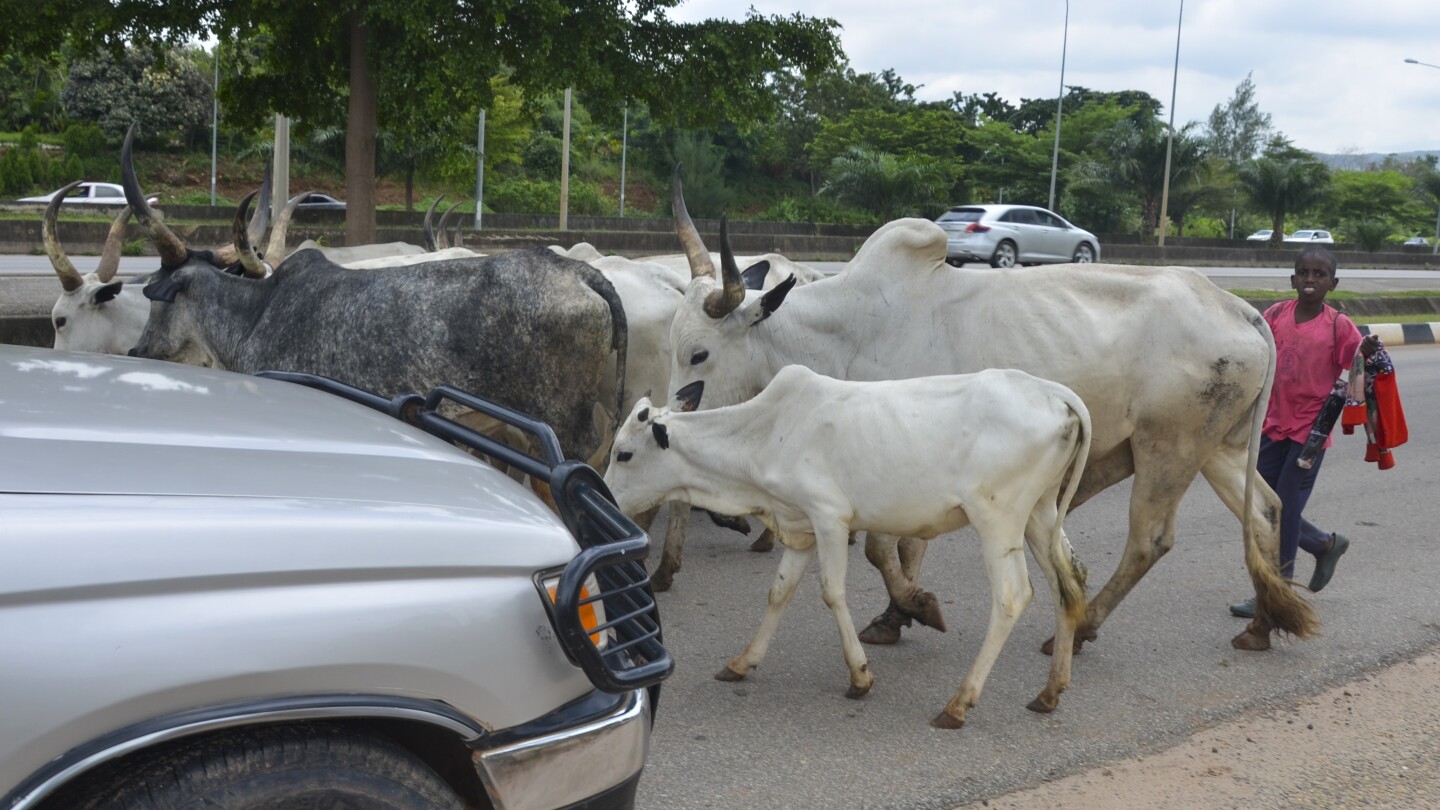At an intersection seven miles from the presidential villa, frustrated drivers honk as a herd of cattle feeds on the grass beautifying the median strip and slowly marches across the road, their hooves clattering against the asphalt. For the teenage herder guiding them, Ismail Abubakar, it is just another day, and for most drivers stuck in the traffic, it’s a familiar scene unfolding in Nigeria’s capital Abuja.
Abubakar and his cattle’s presence in the city center is not out of choice but of necessity. His family are originally from Katsina State in northern Nigeria, where a changing climate turned grazing lands into barren desert. He moved to Idu — a rural, bushy and less developed part of Abuja — many years ago. But it now hosts housing estates, a vast railway complex and various industries.
Fulani herders like Abubakar are traditionally nomadic and dominate West Africa’s cattle industry. They normally rely on wild countryside to graze their cattle with free pasture, but the pressures of modernization, the need for land for housing and crop farming and human-caused climate change are challenging their way of life. To keep cattle off of Abuja’s major roads and gardens, some suggest that herders need to start acquiring private land and operating like other businesses. But to do that, they’d need money and government incentives.



Associated Press - News Source Context (Click to view Full Report)
Information for Associated Press:
Search topics on Ground.News
https://apnews.com/article/nigeria-abuja-pastoralists-cattle-roaming-dc5e512e2817f53ce9a2676e5aea9a23
Media Bias Fact Check | bot support